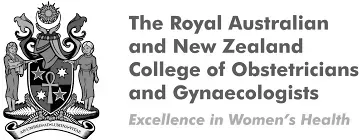Fertility Treatment Options
What are Fertility Treatments?
Fertility treatments are medical interventions designed to assist individuals and couples who experience difficulties in conceiving naturally. These treatments can address various causes of infertility, including issues with the reproductive system, hormonal imbalances, and unexplained infertility.
Who is Suitable for Fertility Treatments?
Fertility treatments can be suitable for individuals or couples having difficulty conceiving a child.
There are various reasons why someone might have trouble getting pregnant, including
- issues with ovulation,
- problems with the reproductive organs, or
- problems with the sperm.
Some people may have been diagnosed with conditions such as
- polycystic ovary syndrome (PCOS),
- endometriosis, or
- a low sperm count.
Others may have unexplained infertility. Usually, couples or individuals trying to conceive for at least a year without success may be considered for fertility treatments. However, earlier care may be warranted if you are a female 35 years or older or have any other possible fertility concern.
Fertility treatments are not guaranteed to work. Success rates can vary depending on factors such as the underlying cause of infertility, the age of the individual or individuals, and the specific treatment being used.
Benefits of Fertility Treatments
Fertility treatments can offer several benefits to individuals and couples with difficulty conceiving. Some of the potential benefits include the following:
- Increased chances of pregnancy: Fertility treatments can increase the chances of pregnancy and live birth by addressing underlying issues with ovulation, sperm, or the reproductive organs.
- Tailored treatment options: Different fertility treatments can address different causes of infertility. For example, in vitro fertilisation (IVF) may treat blocked fallopian tubes, while intracytoplasmic sperm injection (ICSI) may treat a low sperm count.
- Timing options: Some fertility treatments, such as ovulation induction and artificial insemination, can be timed to increase the chances of conception.
- Preservation of fertility: Some fertility treatments, such as egg freezing, can preserve fertility for individuals who may want to delay childbearing for personal or medical reasons.
- Emotional support: Fertility treatments can provide emotional support for couples struggling with the stress and disappointment of infertility. Other support methods, such as counselling, are available.
Type of Fertility Treatments
Several types of fertility treatments can be used to help couples conceive a child. The three main types are:
- medicines
- surgical procedures
- assisted conception
Infertility Treatment for Women and Men
Depending on the test results, different treatments can be suggested. Eighty-five to 90 per cent of infertility cases are treated with medications and/or surgery.
Various fertility drugs may be used for women with ovulation problems. Talking with Alyousif about the drug to be used is essential. You should understand the drug’s benefits and side effects. Depending on the type of fertility drug and the drug dosage used, multiple births (such as twins) can occur in some women.
Surgery can be performed for conditions such as uterine polyps, uterine fibroids, and endometriosis if needed. Sometimes, a man has an infertility problem that can be corrected by surgery.
A complex collection of factors can cause infertility; thus, one treatment does not suit all.
Significant advances have been achieved in assisted reproductive technology, and while IVF may be the best treatment for many patients, other fertility treatments may be more appropriate for some patients.
For the particular population of women and men who will require cancer-related therapies that may threaten their long-term fertility, various treatments may decrease the chances of infertility post-treatment or offer them an opportunity to have genetic children of their own in the future if their fertility is permanently impaired.
We also provide counselling for fertility options for single women and same-sex couples.
Assisted Reproductive Technology (ART)
Assisted Reproductive Technology (ART) uses unique methods to help infertile couples. ART involves handling both the woman’s eggs and the man’s sperm. Success rates vary and depend on many factors. ART can be expensive and time-consuming. But ART has allowed many couples to have children that otherwise could not have been conceived.
- In vitro fertilisation (IVF) is a procedure made famous with the 1978 birth of Louise Brown, the world’s first “test-tube baby.” IVF is often used when a woman’s fallopian tubes are blocked or a man has a low sperm count. A drug is used to stimulate the ovaries to produce multiple eggs. Once mature, the eggs are removed and placed in a culture dish with the man’s sperm for fertilisation. After about 17 hours, the eggs are examined to see if they have become fertilised by the sperm. The fertilised eggs are kept in specialised conditions to allow cell development and growth to an embryo stage. These embryos are then placed in the woman’s uterus, thus bypassing the fallopian tubes.
- Intracytoplasmic sperm (ICSI) is an additional step in the IVF process that is sometimes required. It involves injecting a single sperm into the egg cell using fine micro-manipulation equipment. It can help to overcome many severe sperm problems.
Ovulation Induction (OI)
This involves taking medication such as tablets or injections to induce ovulation. Then, you will be advised of the optimal time to have intercourse. This is an appropriate treatment for women who do not regularly ovulate. It is of minimal benefit to women who already naturally ovulate each month.
Intrauterine Insemination (IUI)
Intrauterine insemination (IUI) is a fertility treatment involving placing sperm into the woman's uterus using a thin, flexible tube (catheter) during ovulation. The goal is to increase the chances of pregnancy by getting the sperm closer to the egg so that fertilisation is more likely to occur.
IUI can treat various infertility issues, such as mild male factor infertility (low sperm count or poor sperm motility), cervical mucus problems, sexual function problems and when donor sperm is required.IUI is a relatively simple and non-invasive procedure performed in the clinic. The process typically takes only a few minutes and is generally painless.
In Vitro Fertilisation (IVF)
It involves stimulating the ovaries to release more than one egg for the treatment month with fertility medication. Then right before ovulation, the eggs are collected under general anaesthesia via a minor procedure called egg collection or oocyte pick-up (OPU), involving a fine needle through the vagina. The eggs are then fertilised with the sperm by either immersing them in the sperm or by selecting the sperm and injecting it into the egg (ICSI). The fertilised egg (embryo) is then cultured in the laboratory for 2-5 days and inserted back into the uterus to await implantation (attachment to the uterus).
Operative Laparoscopy or Hysteroscopy
This is a day procedure under general anaesthesia where pelvic pathology that may compromise fertility (such as endometriosis, polyps, or fibroids) is treated. An overnight hospital stay may be required following laparoscopy.
Fertility Preservation
Fertility preservation involves methods to save or protect eggs, sperm, or reproductive tissue so that a person can use them to have biological children in the future. This is particularly beneficial for individuals who are undergoing medical treatments that can affect fertility, such as chemotherapy, or those who wish to delay childbearing for personal reasons.
Surgical Sperm Retrieval
Surgical sperm retrieval is used to collect sperm directly from the testicles or epididymis in men who have obstructive or non-obstructive azoospermia (absence of sperm in the ejaculate). This method is often used in conjunction with assisted reproductive technologies like IVF or ICSI.
Fertility Treatments Prognosis
The prognosis for fertility treatments can vary depending on various factors, including the underlying cause of infertility, the age of the individual or individuals, and the specific treatment being used.
In general, fertility treatments such as ovulation induction, artificial insemination, and intrauterine insemination (IUI) have lower success rates compared to more advanced treatments such as in vitro fertilisation (IVF) and intracytoplasmic sperm injection (ICSI).
Fertility treatments have a higher success rate for couples with a specific identifiable cause of infertility. For example, a blocked fallopian tube can be treated with IVF with a high success rate. However, the success rate is slightly lower for couples with unexplained infertility.
Success rates can also vary depending on the woman's age. The younger a woman is, the higher the chances of success with fertility treatments.
It's important to note that fertility treatments are not guaranteed to work, and many factors can influence the treatment outcome. Dr Alyousif will evaluate the couple and suggest the appropriate treatment accordingly. She will also provide an estimate of the success rate of the chosen treatment, taking into account the couple's circumstances.
Fertility Treatment Risks
Fertility treatments can have certain risks that should be considered before any procedure. Some of the potential risks associated with fertility treatments include
- Multiple pregnancies: Certain fertility treatments, such as ovulation induction and in vitro fertilisation (IVF), increase the chances of having twins or multiple other pregnancies. These pregnancies can be high-risk and may require close monitoring and early delivery.
- Ovarian hyperstimulation syndrome (OHSS): Ovarian hyperstimulation syndrome can be a severe complication that can occur with ovulation induction and in vitro fertilisation (IVF). It occurs when the ovaries become swollen and painful due to the growth of multiple follicles. Symptoms can range from mild to severe and, in rare cases, life-threatening.
- Ectopic pregnancy: Ectopic pregnancy is a severe condition when a fertilised egg implants outside the uterus. It is an uncommon complication of fertility treatments but can be life-threatening if not treated promptly.
- Miscarriage: Fertility treatments do not guarantee a successful pregnancy, and miscarriage can still occur even with fertility treatments.
- Emotional stress: Fertility treatments can be emotionally stressful and can take a toll on individuals and couples, especially if they don't result in a successful pregnancy.
- Cost: Fertility treatments can be expensive and not covered by insurance.
What if Fertility Treatments are Delayed?
Delaying fertility treatments can impact the chances of success and the overall outcome of the treatment.
The chances of success with fertility treatments decrease as a woman ages. The quality and quantity of a woman's eggs decline as she ages, and the risk of miscarriage and chromosomal abnormalities in the embryo increases. This is why fertility treatments are often more successful in younger women.
Therefore, if the treatment is delayed, the eggs will be older and less likely to be fertilised and develop into embryos.
Delaying fertility treatments can also prolong the emotional stress and disappointment of infertility for couples. The longer a couple waits for treatment, the longer they have to deal with the emotional and psychological stress of infertility.
It's important to note that infertility can have multiple causes, some of which may be reversible. Therefore, it is essential to consult a Reproductive Endocrinologist (RE) when the couple starts having difficulty conceiving.



